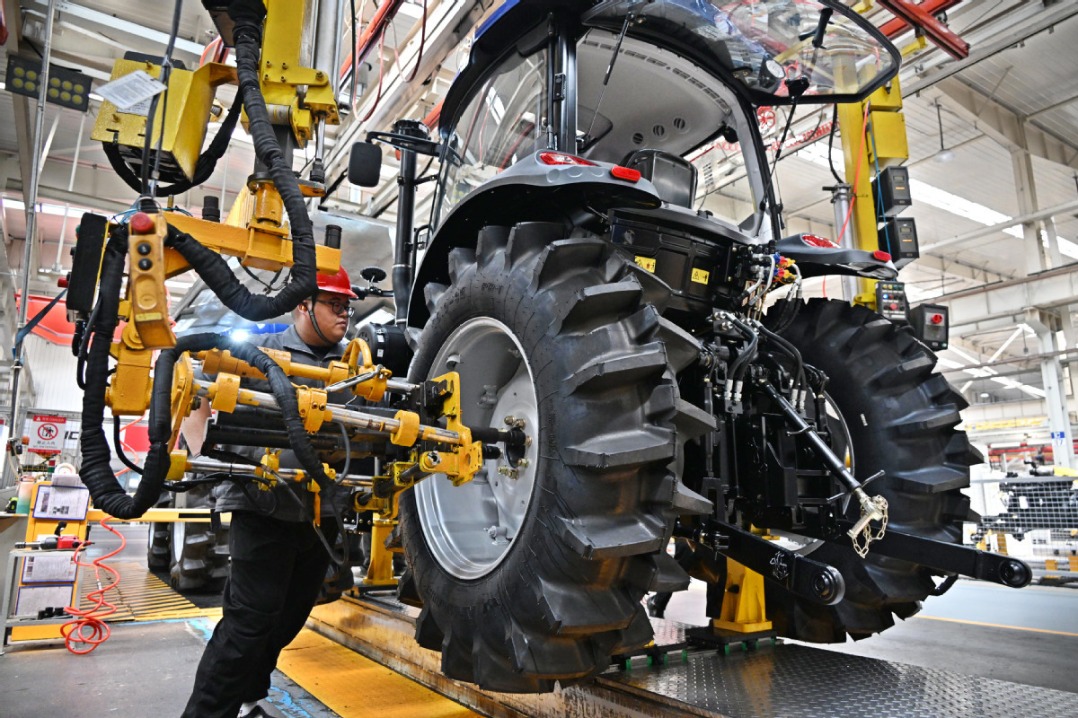Fiscal policies to aid sci-tech innovation
Higher budgetary allocation will foster new growth momentum


China will strengthen the implementation of fiscal and taxation policies supporting scientific and technological innovation, to promote industrial upgrades and foster new growth momentum, a senior official said on Wednesday.
Addressing a news conference in Beijing, Wang Dongwei, vice-minister of finance, explained how his ministry will help promote high-quality development.
"Focusing on 'strengthening foundation and targeting key areas', we will further support the enhancement of capabilities in scientific and technological innovation," Wang said.
Data from the ministry showed that the central government has earmarked 370.8 billion yuan ($51.3 billion) toward science and technology expenditure in this year's budget, marking a 10 percent year-on-year increase.
The ministry is strongly committed to fostering the integrated development of scientific and technological innovation and industrial innovation, Wang said.
It will continuously scale up investment in basic research, applied basic research and frontier research, while refining the investment mechanism for basic research that features a combination of competitive funding with stable support.
In addition, it has also been supporting the initiation of a series of major national science and technology projects. Apart from ensuring funding for breakthroughs in key areas and core technologies, it will promote the integrated and clustered development of strategic emerging industries, and faster cultivation and growth of future industries.
Wang also told the news conference that the ministry has initiated two pilot programs to promote the deep integration of real and digital economies.
The three-year pilot program for the digital transformation of small and medium-sized enterprises started in 2023, with the pilot to be rolled out in 90 cities in three phases. Currently, 66 cities have participated in the pilot works.
The second initiative is to allocate 18 billion yuan, also in three batches, to support 60 cities in conducting pilot programs for new technological transformations in the manufacturing sector.
To enhance the resilience and security level of the industry and supply chains, the ministry will support efforts to resolve "bottleneck "issues in industry and supply chains, implementing a combination of various policy tools, Wang said.
Such support includes those for the development of industry chains in key sectors like integrated circuits, industrial mother machines — or machines used to manufacture machines, medical devices, industrial software and basic software, as well as those for fostering independently controllable industry and supply chains.
In addition, the ministry will work to promote high-quality development of the services sector and reinforce construction of modern infrastructure.
As for reforms in the fiscal and tax systems, Wang said the country will expand the sources of tax revenue at the local level and grant greater authority for tax management to local governments as appropriate, while regulating the management of non-tax revenue.
It will take steps to move excise tax collection further down the production-to-consumption chain and pass the power of collection steadily to local governments. The moves will be conducted in a measured and phased approach, step by step, in accordance with various categories of tax items.
The country will also improve the environmental protection tax system to include volatile organic compounds among taxable items, Wang said.
Yao Yang, director of the China Center for Economic Research at Peking University, said that the recently concluded third plenary session of the 20th Central Committee of the Communist Party of China has set the direction for reforms in fiscal and tax systems, and the key is in implementation.
Yao said he expects the Chinese government to roll out more fiscal and monetary policy measures step by step in the second half to boost economic growth momentum.




































